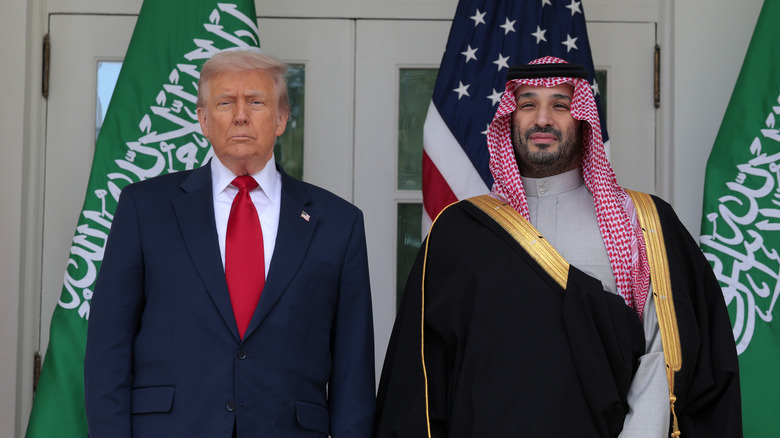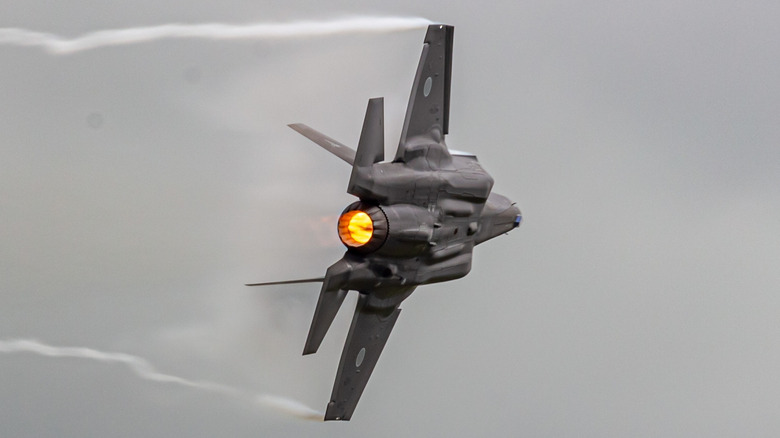Why Trump Wants To Sell F-35 Fighter Jets To Saudi Arabia
On November 18, 2025, the White House confirmed that President Donald Trump agreed to sell a selection of F-35 fighter jets, and other U.S. military technology, to Saudi Arabia. The agreement was reached during Saudi Arabian Crown Prince Mohammed bin Salman's visit to Washington, D.C., and while many have expressed concern about the long-term implications of this decision, there are a number of forces at play that could be making it a sensible decision in Trump's eyes.
For one thing, F-35s are extremely expensive to make: Congress reported that each jet costs upwards of $77 million. While that's not quite as much as what Trump's private jet cost, selling these fighter jets would presumably yield the U.S. a tidy profit at a time when the country needs it — especially with extra expenses like those $2,000 tariff rebate checks in the works. Additionally, the F-35 sale is only one part of a larger series of trade agreements occurring between the U.S. and Saudi Arabia, with the latter country agreeing to contribute upwards of $1 trillion toward the American development of nuclear energy and artificial intelligence.
Another factor could be that Trump has expressed his desire for Saudi Arabia to join the Abraham Accords, an agreement that currently bolsters some degree of unity between Israel and several Middle Eastern nations. However, seeing as how many credit Israel's military domination in the region to its use of F-35s, providing Saudi Arabia its own access to the jets could make building that relationship more complicated.
Why Saudi Arabia is interesting in the F-35
It's no surprise that the Crown Prince would seek out F-35s as part of Saudi Arabia's new arrangement with the United States. The F-35 was made with versatility in mind. Different versions of the jet are used by three separate U.S. military branches, and around 20 other countries use them worldwide. Speaking with NPR about the jet's state-of-the-art technology, senior director of the Center on Military and Political Power at the Foundation for Defense of Democracies, Bradley Bowman, noted, "What makes the F-35 particularly formidable is the increased difficulty our adversaries have in detecting it. So, if you can't see it, you can't kill it."
International conflicts often line the pockets of arms dealers like F-35 manufacturer Lockheed Martin, and this deal will surely be no different. Even so, F-35 production has experienced considerable delays in recent years, with a September 2025 Government Accountability Office report finding that all 110 of the aircrafts delivered by Lockheed Martin in 2024 were late by an average of 238 days. Not to mention, the cost to maintain, operate, and modernize the U.S.'s planned 2,470 planes will exceed $2 trillion over a 77-year life cycle. With that said, it remains to be seen when, exactly, Saudi Arabia might actually get to utilize its purchase — and if it will even be worth the cost.

